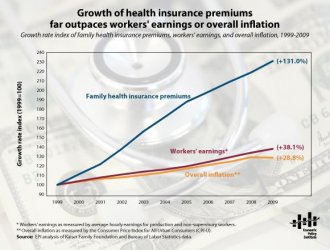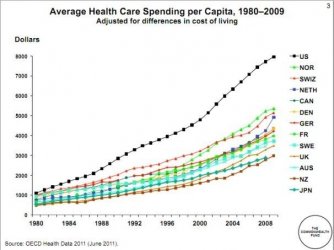2013:

2017:

So what sticks out to you? For me,
Thoughts?
.
2017:
So what sticks out to you? For me,
- Interest on the debt nearly doubles, from 7% to 12%, and that's assuming that interest rates stay under control. How many of us would like to bet the house on that one?
- Defense spending is reduced significantly, from 24% to 18%. If done right, I'd bet that won't decay the effectiveness of the military.
- Health care, from 24% to 28%. Holy crap. The politicians are too busy fundraising and posing for the teevee camera to work on our biggest health care problem, costs.
Thoughts?
.



